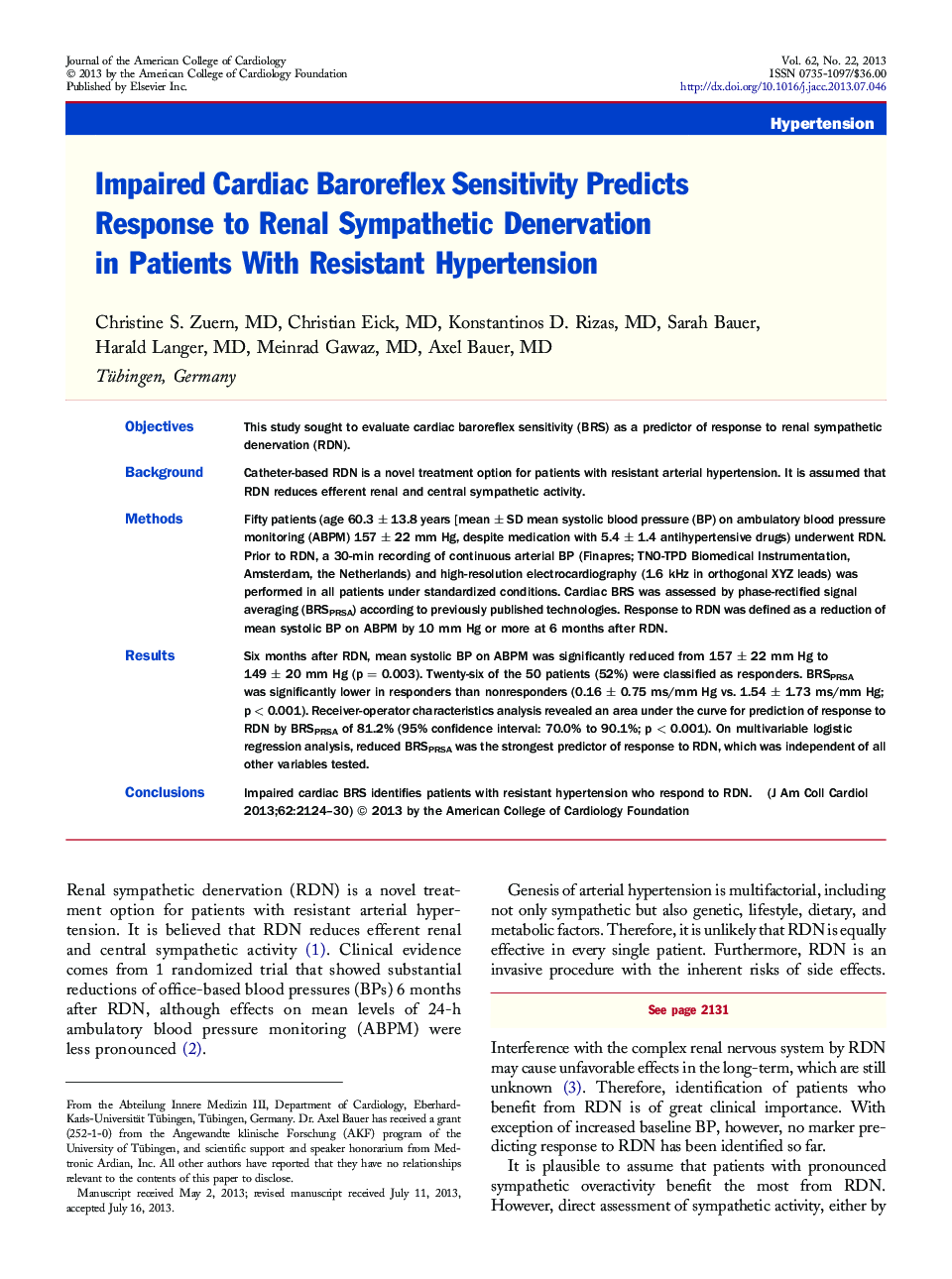| کد مقاله | کد نشریه | سال انتشار | مقاله انگلیسی | نسخه تمام متن |
|---|---|---|---|---|
| 2945331 | 1577128 | 2013 | 7 صفحه PDF | دانلود رایگان |

ObjectivesThis study sought to evaluate cardiac baroreflex sensitivity (BRS) as a predictor of response to renal sympathetic denervation (RDN).BackgroundCatheter-based RDN is a novel treatment option for patients with resistant arterial hypertension. It is assumed that RDN reduces efferent renal and central sympathetic activity.MethodsFifty patients (age 60.3 ± 13.8 years [mean ± SD mean systolic blood pressure (BP) on ambulatory blood pressure monitoring (ABPM) 157 ± 22 mm Hg, despite medication with 5.4 ± 1.4 antihypertensive drugs) underwent RDN. Prior to RDN, a 30-min recording of continuous arterial BP (Finapres; TNO-TPD Biomedical Instrumentation, Amsterdam, the Netherlands) and high-resolution electrocardiography (1.6 kHz in orthogonal XYZ leads) was performed in all patients under standardized conditions. Cardiac BRS was assessed by phase-rectified signal averaging (BRSPRSA) according to previously published technologies. Response to RDN was defined as a reduction of mean systolic BP on ABPM by 10 mm Hg or more at 6 months after RDN.ResultsSix months after RDN, mean systolic BP on ABPM was significantly reduced from 157 ± 22 mm Hg to 149 ± 20 mm Hg (p = 0.003). Twenty-six of the 50 patients (52%) were classified as responders. BRSPRSA was significantly lower in responders than nonresponders (0.16 ± 0.75 ms/mm Hg vs. 1.54 ± 1.73 ms/mm Hg; p < 0.001). Receiver-operator characteristics analysis revealed an area under the curve for prediction of response to RDN by BRSPRSA of 81.2% (95% confidence interval: 70.0% to 90.1%; p < 0.001). On multivariable logistic regression analysis, reduced BRSPRSA was the strongest predictor of response to RDN, which was independent of all other variables tested.ConclusionsImpaired cardiac BRS identifies patients with resistant hypertension who respond to RDN.
Journal: Journal of the American College of Cardiology - Volume 62, Issue 22, 3 December 2013, Pages 2124–2130